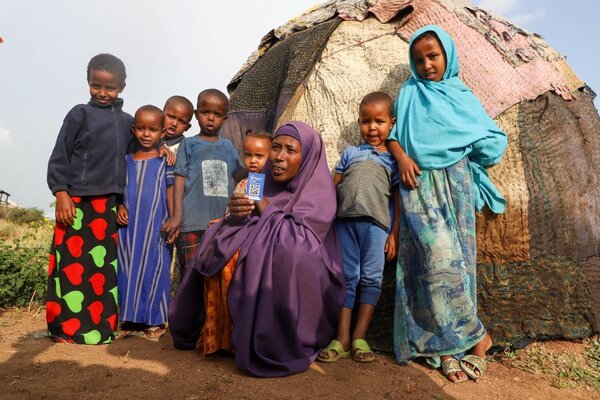WFP launches new operating model to restart food distribution to millions of vulnerable Ethiopians

This is the culmination of a complete evaluation and reset of WFP operations in Ethiopia focused on transparency, evidence, and operational independence. WFP’s new approach is underpinned by a robust set of safeguards and controls that have been extensively tested. These include:
- Using clear criteria to identify and digitally register the most vulnerable households and people;
- Working with local communities to verify those in greatest need;
- Reinforced commodity trackingto follow food movements from warehouses to beneficiaries; and
- Increased monitoring and community feedback and reporting mechanismsthat will unearth and quickly escalate potential misuse of food aid.
“WFP teams and our partners have been working around the clock to get to this point”, said Cindy McCain, WFP Executive Director. “This approach, supported by both the Government and partners, sets a new standard for humanitarian assistance in the country. We are now fully focused on getting food aid into the hands of Ethiopians who have gone too long without it.”
Following the success of limited-scale distributions carried out in Ethiopia’s Tigray region to test the new systems, WFP will roll out food distributions for drought- and conflict-affected people in Afar, Amhara, Somali, and Tigray regions. Food assistance will then expand to more of the most vulnerable populations once the new controls and measures are implemented at the regional level.
Last month, WFP resumed food assistance to nearly 900,000 refugees in camps across five regions in the country, after making major reforms to refugee programmes. Ethiopia hosts refugees mostly from Somalia, South Sudan, and Eritrea, as well as about 35,000 people who have fled from Sudan in recent months – and WFP works closely with the UN High Commissioner for Refugees (UNHCR) and other partners to provide food and other support.
While initially drawing upon in-country food stocks, WFP urgently needs US $178 million to keep reaching and delivering food assistance to the most vulnerable people in Ethiopia until April 2024.
# # #
The United Nations World Food Programme is the world’s largest humanitarian organization, saving lives in emergencies and using food assistance to build a pathway to peace, stability and prosperity for people recovering from conflict, disasters and the impact of climate change.
Follow us on Twitter @wfp_media @WFP_Ethiopia
Topics
Ethiopia Logistics and delivery networks Food securityContact
For more information, please contact wfp.media@wfp.org or (email address: firstname.lastname@wfp.org):
Claire Nevill, WFP/Ethiopia,
Mob. +251 944 33 4949
Azfar Deen, WFP/ Rome,
Mob. +39 345 846 6425
Steve Taravella, WFP/ Washington,
Mob. +1 202 770 5993
Brenda Kariuki, WFP/Nairobi,
Mob. +254 707 722 104
